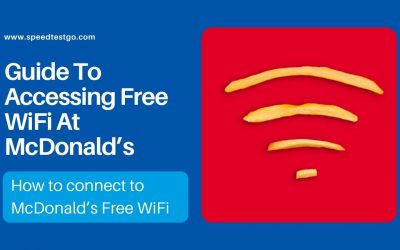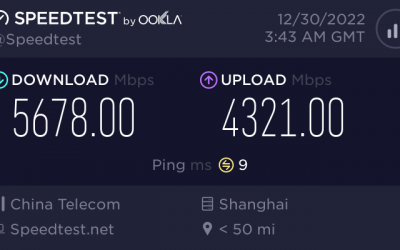Test your current internet speed
Before you get started, test your current internet speed. Use your speed test result as a baseline and compare the results as you go through your journey on reaching a faster internet connection.
SpeedtestAre you tired of restrictions and limitations placed on your internet access at school? Feeling frustrated at the inability to access educational resources, news, or even entertainment websites? You’re not alone. Millions of students worldwide face similar challenges due to school-imposed internet filters.
There’s a way to break free from these digital shackles and reclaim your internet freedom. In this blog post, we’ll explore the top 10 school bypass proxy methods that will help you access any website, unblock restrictions, and unleash the internet’s full potential.
School proxies are tools used by educational institutions to restrict access to certain websites or online content. This can be done for various reasons, such as promoting academic focus, preventing access to inappropriate material, or protecting school networks from malicious activity.
While well-intentioned, these restrictions can sometimes become overly restrictive, hindering access to valuable information and resources. This is where school bypass proxies come in, offering a way to circumvent these restrictions and explore the vastness of the online world.
Before diving into the specific methods, let’s first address the elephant in the room: is it legal to bypass school proxies? The short answer is: it depends. While bypassing school proxies isn’t inherently illegal, it may violate your school’s policies or terms of use. Therefore, it’s important to check your school’s policies and use bypass methods responsibly and ethically.
With that said, let’s embark on our journey to unlock the internet and discover the best school bypass proxies methods!
Top 10 School Bypass Proxies Methods
1. Web Proxies
Web proxies are the simplest and most user-friendly method for bypassing school restrictions. These online tools act as intermediaries between your device and the website you want to access. They hide your IP address and route your traffic through their servers, making it appear as if you are browsing from a different location.
Pros:
- Easy to use: No technical knowledge required, simply paste the website URL into the proxy website.
- Free: Many free web proxies are available, making them accessible to students with limited resources.
- No software installation: No need to download or install any software on your device.
Cons:
- Slower speeds: Web proxies can significantly slow down your internet speed due to the additional routing process.
- Limited security: Free web proxies may not offer sufficient security and privacy protection.
- Website compatibility issues: Some websites may block access from known proxy servers.
Popular Web Proxies:
- HideMyAss
- KProxy
- ProxySite
- CroxyProxy
- Megaproxy
2. Proxy Extensions
Proxy extensions take things a step further by integrating seamlessly into your web browser. These extensions offer similar functionality to web proxies but provide a more convenient and integrated experience.
Pros:
- Direct integration: Easily access blocked websites directly from your browser.
- Faster than web proxies: Many extensions offer faster speeds due to optimized connections.
- Customization options: Some extensions offer features like location selection and traffic encryption.
Cons:
- Compatibility issues: Extensions may not work with all browsers or operating systems.
- Limited functionality: Free extensions may have restrictions on data usage or features.
- Resource consumption: Extensions can consume system resources, impacting performance.
Popular Proxy Extensions:
- Proxmate
- ZenMate
- TouchVPN
- Browsec
- Ultrasurf
3. VPNs
VPNs (Virtual Private Networks) offer the most robust and secure solution for bypassing school restrictions. These services encrypt your entire internet traffic and tunnel it through a secure server, masking your IP address and location, making it virtually impossible for schools to monitor your online activity.
Pros:
- Unparalleled security: Provides the highest level of privacy and protection for your online activities.
- Unblocks all websites: Bypasses even the most sophisticated website filters.
- Multiple device support: Connects all your devices simultaneously with a single subscription.
Cons:
- Cost: VPN services can be expensive, especially for premium features.
- Technical setup: Requires some configuration and technical understanding.
- Performance impact: VPNs may slightly slow down your internet speed.
Popular VPNs:
- NordVPN
- ExpressVPN
- CyberGhost
- PrivateVPN
- Surfshark
4. URL Shorteners
URL shorteners can be a surprisingly effective method for bypassing basic website restrictions. These services take the original website URL and shorten it, often masking the actual domain name. This can sometimes trick school filters into allowing access.
Pros:
- Simple and easy to use: No setup or configuration required.
- Free and readily available: Numerous URL shortening services are available online.
- Can bypass basic filters: Effective against simple keyword-based filtering.
Cons:
- Limited effectiveness: May not work against advanced filtering techniques.
- Security concerns: Some URL shortening services may inject ads or track user data.
Popular URL Shorteners:
- Bitly
- TinyURL
- Rebrandly
- Bl.ink
- Ow.ly
5. The Wayback Machine
The Wayback Machine is a digital archive that preserves historical snapshots of websites. This can be a valuable tool for accessing blocked websites if they have been previously archived.
Pros:
- Free access to archived content: Explore historical versions of websites, even if they are currently blocked.
- Educational value: Gain access to historical information and resources not readily available elsewhere.
- Unique insights: Witness website evolution and changes over time.
Cons:
- Limited content: Only provides access to archived versions, not real-time content.
- No dynamic content: Cannot access interactive features or elements.
- Unreliable for frequently updated websites: Archived content may not be current.
6. Mobile Hotspot
If your phone has a mobile data plan, you can use its internet connection as a mobile hotspot to bypass school restrictions. This allows your device to connect to the internet through your phone instead of the school network.
Pros:
- Convenient and portable: No additional equipment needed, just your phone and laptop.
- No software installation: Connects automatically with minimal configuration.
- Fast internet speeds: Mobile data plans often offer faster speeds than school networks.
Cons:
- Data usage charges: Mobile data usage can be expensive, especially for heavy streaming or downloading.
- Battery drain: Tethering your phone can drain its battery quickly.
- Limited device connections: Mobile hotspots typically only support a small number of simultaneous connections.
7. SSH Tunneling
SSH Tunneling is a more technical method that utilizes the Secure Shell (SSH) protocol to create a secure tunnel through an SSH server. This tunnel allows you to route your internet traffic through the server, bypassing school restrictions.
Pros:
- Highly secure: Provides very high levels of security and encryption for your data.
- Customization options: Allows for fine-grained control over the tunnel configuration.
- Bypasses most filters: Effective against even the most sophisticated filtering techniques.
Cons:
- Technical knowledge required: Requires some understanding of SSH and command-line interface.
- Setting up can be complex: May involve advanced configuration and server access.
- Limited resources: Finding free and reliable SSH servers can be challenging.
8. Port Forwarding
Port forwarding is a networking technique that allows you to redirect specific internet traffic to a designated port on your device. This can be used to bypass school restrictions by routing traffic through a proxy server on a specific port.
Pros:
- Customizable: Allows you to choose the port and proxy server you want to use.
- Potentially faster than other methods: Can offer faster speeds compared to web proxies or VPNs.
- No additional software required: Can be configured directly through your router settings.
Cons:
- Technical knowledge required: Requires understanding of port forwarding and network configurations.
- May not work with all routers: Some routers may not support port forwarding capabilities.
- Security concerns: Can expose your device to potential security risks if not configured correctly.
9. Smart DNS
Smart DNS services offer a less technical alternative to VPNs for bypassing restrictions. These services redirect your DNS requests through a smart DNS server, effectively masking your location and allowing access to blocked websites.
Pros:
- Easy to set up: Requires minimal configuration on your device.
- No software installation: Works with most devices and platforms.
- Unblocks specific websites: Can be customized to target specific websites for bypassing.
Cons:
- Limited functionality: Does not encrypt your internet traffic or protect your privacy.
- Cost: Paid subscriptions required for the most reliable Smart DNS services.
- May not work for all websites: May not bypass all filtering techniques.
10. Tor Browser
The Tor Browser is a specialized web browser designed for anonymity and privacy. It routes your internet traffic through a network of volunteer-operated nodes, making it virtually impossible to track your online activity. This can be an effective method for bypassing school restrictions and accessing blocked websites.
Pros:
- Unparalleled privacy: Provides the highest level of anonymity and protection against online tracking.
- Bypasses most filters: Effective against even the most sophisticated censorship techniques.
- Free and open-source: Available for free on all major platforms.
Cons:
- Slow speeds: Tor network can significantly slow down your internet speed.
- Limited website functionality: Some websites may not work correctly with Tor.
- Potential security risks: Connecting to unknown Tor nodes can pose potential security risks.
Conclusion
The best school bypass proxy method for you depends on your technical expertise, budget, and specific needs. While some methods are easier to use like web proxies, they may offer limited security and functionality. Conversely, more complex methods like SSH Tunneling or Tor Browser provide advanced security and anonymity but require more technical knowledge.
Ultimately, the choice is yours. Do your research, experiment with different methods, and see what works best for you. Remember, responsible and ethical use of these tools is crucial to ensure your online safety and freedom.
Bonus Tip: Exploring Additional Options
The internet is constantly evolving, and new methods for bypassing school restrictions are constantly emerging. While the top 10 methods listed above offer a comprehensive starting point, don’t be afraid to explore further. Here are some additional tips and resources to consider:
1. Stay informed: Keep yourself updated on the latest school filtering techniques and bypass methods. Read blogs, forums, and articles to stay ahead of the curve.
2. Experiment and compare: Try different methods and compare their effectiveness, speed, security, and ease of use.
3. Combine methods: Sometimes, combining different methods can provide even better results. For example, you can use a proxy extension in conjunction with a VPN for enhanced security and unblocking capabilities.
4. Utilize free resources: There are numerous free and open-source tools and resources available online. Research and utilize these resources to maximize your options without spending unnecessarily.
5. Be cautious: Be wary of unknown websites and services. Only use reputable tools and services that prioritize security and privacy.
6. Respect the rules: While bypassing school restrictions may be tempting, always prioritize responsible and ethical use. Avoid accessing illegal or harmful content and respect the policies set by your school.
7. Seek help: If you encounter technical difficulties or have any questions, don’t hesitate to seek help from online forums, communities, or tech-savvy friends.
By following these bonus tips and staying proactive in your exploration, you can uncover even more effective methods for bypassing school restrictions and accessing the vast resources and information available online. Remember, knowledge is power, and the internet is your oyster!

The visionary founder behind SpeedtestGo, an innovative platform dedicated to helping users measure and optimize their internet speed. With a deep-rooted love for technology and a mission to empower individuals with reliable internet connections, Shawn has created a remarkable space where users can test their internet speed and gain valuable insights and information through engaging blog content.




![Easy ways to See Who’s Connected to Your Wi-Fi [2024]](https://speedtestgo.com/wp-content/uploads/2022/07/linkedin-sales-solutions-G_xz2zH-Z34-unsplash-400x250.jpg)



